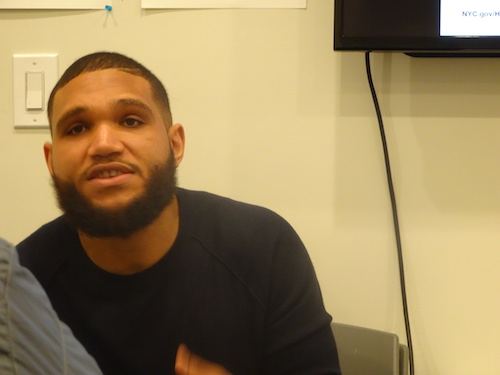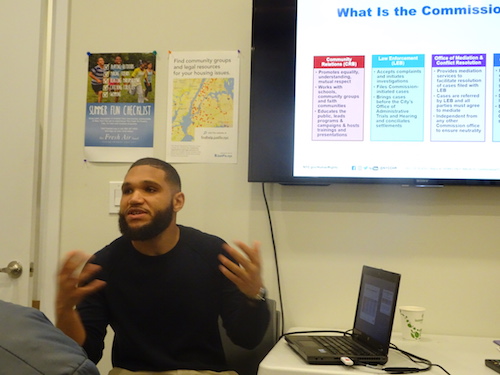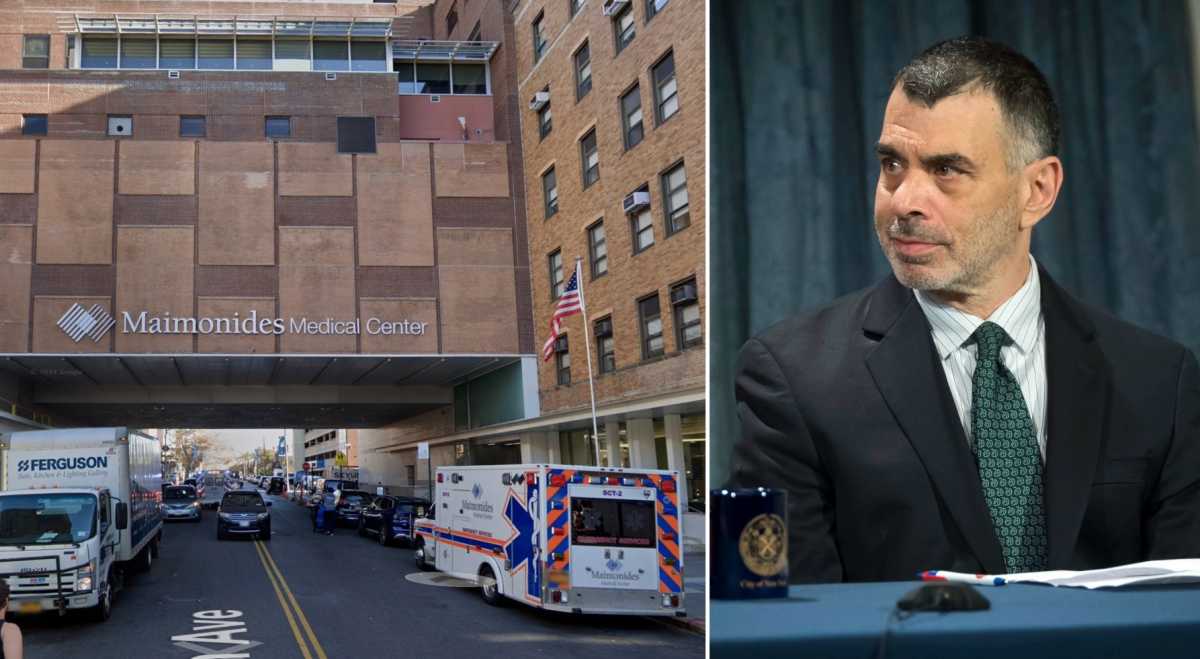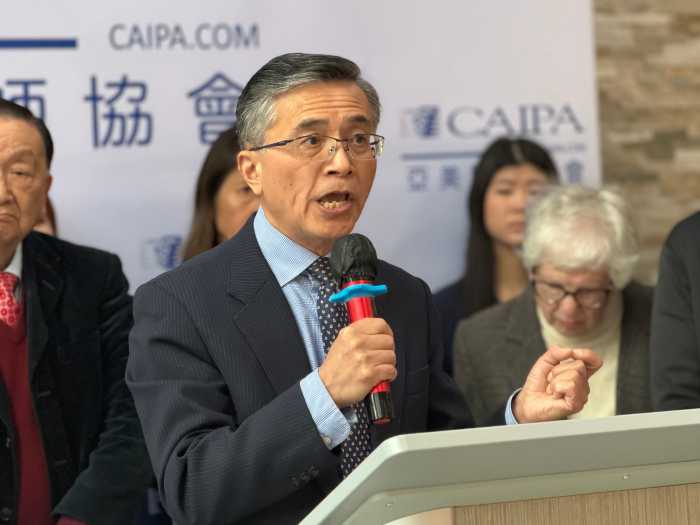Legal Hand, a volunteer organization that dispenses free legal information to the community, hosted an income discrimination workshop at its 250 Kingston Avenue Crown Heights location last night.
The city’s Commission on Human Rights Specialist Abraham Tejeda lead the workshop, whose purpose was to inform attendees how to tell if their treatment at the hands of their landlords constitutes discrimination, and what they can do to stop it if it does.

Tejeda began by providing a summary of the City Human Rights Law, and the legal definition of discrimination. As he explained, discrimination in this context is defined as, “unfair or unequal treatment of a person or group, based on certain characteristics or membership in a protected class, such as race or color.”
He stressed that in order to document an instance of discrimination covered by NYCCHR laws, there must be proof that a “certain relationship” exists between the two parties.
“Typically, it would be between an employee and employer, a tenant and a landlord, or a customer and a public accommodation,” said Tejeda. “However, I don’t take that to mean that you cannot file complaints against other people; discriminatory harassment in general is covered. If you feel like you’re being discriminated against by other people, it may be a little bit more difficult to pursue a case against them, but you can file a complaint with us, and we would be willing to investigate it.”
However, discrimination in tenant-landlord relationships was the primary focus of the workshop, and Tejeda then took ample time to explain what the NYCCHR laws do and do not cover in that regard.
He provided a rundown of all the protected classes covered by NYCCHR regulations, which included race, religion, citizenship status, disability status, and source of lawful income. “Lawful income,” according to Tejeda, includes any form of local, state or federal financial assistance towards the paying of rent, such as SSI, LINC and Section 8 – so landlords must accept rent payments from any of those sources.
But as he pointed out, exceptions to these laws – particularly the ones pertaining to income – do exist. Landlords who own smaller complexes, for instance, can legally discriminate based on the tenant’s income source.
“In effect, smaller landlords are exempt from these laws,” said Tejeda. “For example, if a person owns a brownstone with three families in it, and that’s the only building that they own, they don’t have to accept people with vouchers in that building.”
Tejeda also talked about subtler, less overt types of discrimination that attendees may be subject to. Discrimination, he said, doesn’t always come in the form of landlords refusing to rent to a particular group, or refusing to put in accommodations for disabled tenants. Some landlords may opt to intimidate tenants with threats, or pressure them into leaving by purposely making their living spaces inhospitable.
“An example would be failure to provide heat because of the tenant’s age,” said Tejeda. “If they’re trying to get a senior out of their apartment by failing to provide services, that would be considered tenant harassment.”
After the presentation, Tejeda tested the attendees by presenting a series of “case studies,” or hypothetical interactions between landlords and tenants, and quizzed them on whether they would legally constitute discrimination under NYCCHR laws.
At the conclusion of the evening, Tejeda provided some brief instructions on how to contact the NYCCHR if they think they’re facing discrimination, and passed out some pamphlets that included more detailed information about the protections that tenants are entitled to.
At 6 p.m., tomorrow, April 11, Legal Hand will be hosting another discrimination workshop at their Crown Heights office – this one centered around immigrants’ rights – as part of their continuing effort to empower and educate New York’s most vulnerable citizens.










